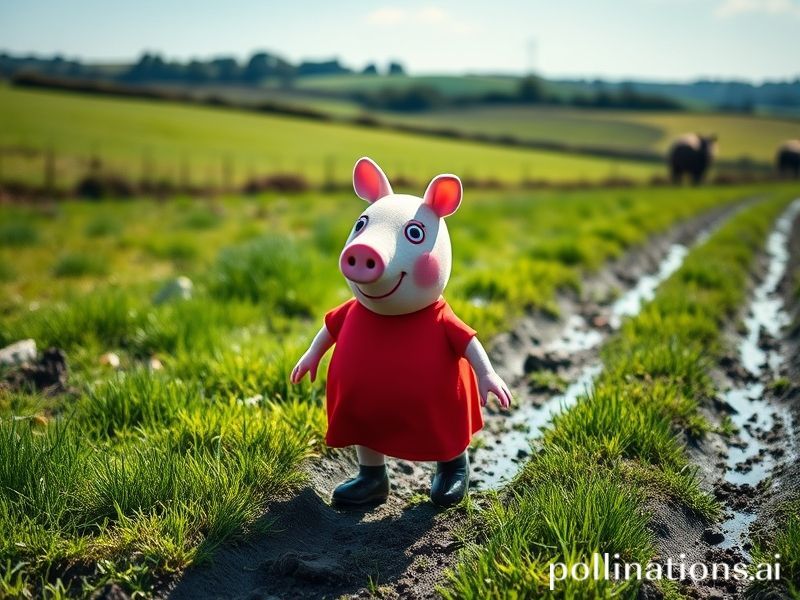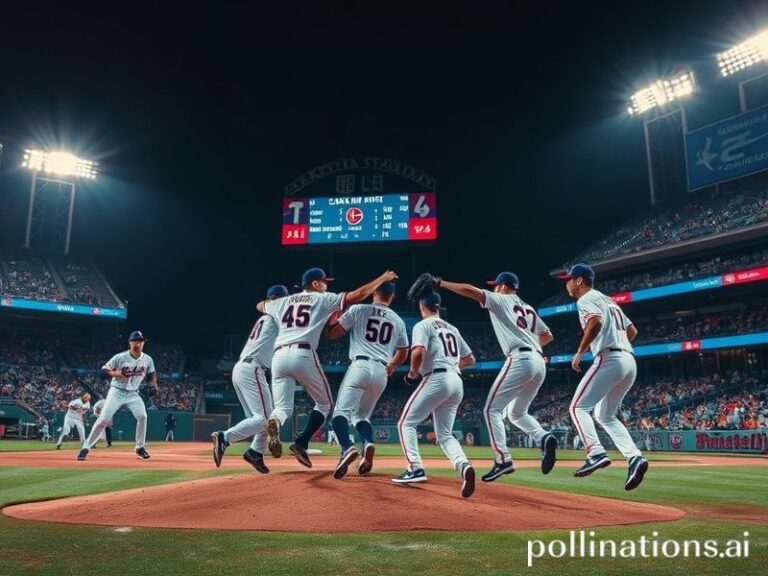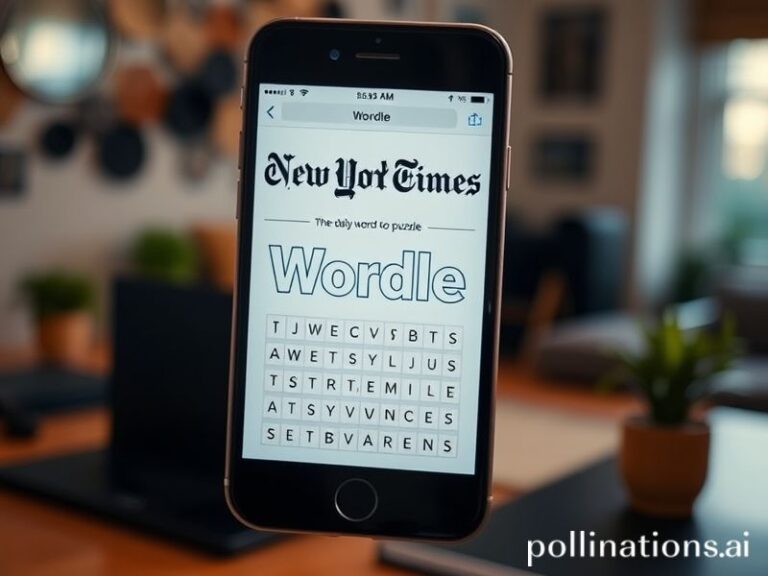Global Domination in Pigtails: How Peppa Pig Conquered the World One Squeak at a Time
BREAKING: Swine Supremacy Achieved—Peppa Pig Now De Facto Ruler of Earth’s Toddlers, Emerging Markets, and, Alas, Your Last Nerve
By Our Man in the Cultural Swill
Dateline: Everywhere, Tuesday, 08:17 GMT—While the United Nations debates carbon credits and the IMF frets about sovereign debt, an unholy pink alliance has already conquered the planet. Peppa Pig—two pupils, a snout, and the moral flexibility of a hedge fund—has quietly become the most successful British export since imperial guilt. From Lagos minibuses plastered with bootleg decals to Shanghai kindergartens where children chant “oink” during mandatory English hour, the five-minute cartoon sow has achieved what NATO never quite managed: full-spectrum dominance.
The numbers, like most things nowadays, are simultaneously adorable and vaguely apocalyptic. Peppa airs in 180 territories, speaks 40 languages, and grosses over US$1.4 billion a year in merchandise—roughly the GDP of Fiji, if Fiji specialized in plastic tea sets that break before the first sip. Analysts at the Frankfurt Toy Fair whisper that Peppa is “recession-proof,” a phrase last used to describe fentanyl. During the pandemic, viewership spiked 300 percent, proving that when civilization collapses, toddlers will still require anthropomorphic swine to explain why sharing is caring and why coughing on Grandma is frowned upon.
Yet the geopolitical fallout is where things get interesting—and by interesting, I mean existentially grim. Chinese censors once banned Peppa for her “gangster” subtext (tattooed boars, apparently, are gateway pigs). The ban lasted 48 hours, after which Beijing discovered that Peppa-branded humidifiers were single-handedly propping up a Guangdong supply chain. Moral panic evaporated faster than you can say “state capitalism with porcine characteristics.” Meanwhile, the Russian Orthodox Church condemned Peppa’s two-mommy polar bears as Western LGBTQ+ propaganda—then quietly licensed talking plush toys inside the same fiscal quarter. Nothing reconciles ideology and commerce quite like a plush pig with a detachable voice box.
In the Global South, Peppa is less cartoon than currency. Nairobi street vendors sell knock-off backpacks at 400 shillings a pop, roughly the daily wage of the guy stitching them. Parents from São Paulo to Jakarta endure the same universal humiliation: the 3 a.m. “Peppa Theme” earworm, a melody so scientifically engineered for psychological occupation that the Pentagon allegedly studied it for crowd-control purposes (they deny it, which, naturally, confirms it). And let us not forget the United Kingdom itself, where Brexit negotiators briefly floated using Peppa as soft-power leverage—“Give us tariff-free Stilton or Peppa gets dubbed into Catalan.” The proposal died in committee, but not before someone calculated the GDP loss of a thousand Peppa-themed birthday parties.
Critics—those joyless souls who read Foucault to their houseplants—argue that Peppa’s universe is a neoliberal fever dream: Daddy Pig works a vague white-collar job, Mummy Pig maintains domestic perfection without visible wages, and Miss Rabbit performs every public-sector role from librarian to helicopter pilot, thus normalizing the gig economy before kids can spell “labor union.” Meanwhile, environmental scientists note that the family drives everywhere, recycles nothing, and gratuitously jumps in muddy puddles—an act now endorsed by 42 percent of UK toddlers as climate policy. Greta Thunberg, presumably, weeps into her reusable water bottle.
Still, the genius of Peppa is her ruthless adaptability. In Italy she’s “Peppa la Porca,” dispensing pasta wisdom; in the Gulf she’s modestly redrawn wearing a hijab for Ramadan specials. Each localization is a masterclass in glocalized propaganda, proving that late-stage capitalism can monetize anything except, apparently, adult attention spans.
Conclusion: As COP delegates argue over 1.5-degree scenarios and central bankers debate digital currencies, the future has already been decided by a four-year-old in Jakarta clutching a squealing backpack. Peppa Pig, the pint-sized pink hegemon, has achieved what empires, religions, and crypto-bros could not: total, unquestioned planetary fealty. The mud puddle is the new public square. Resistance is futile; the oink is eternal. Sleep tight, humanity—Daddy Pig is driving, and the sat-nav’s set for dystopia.







